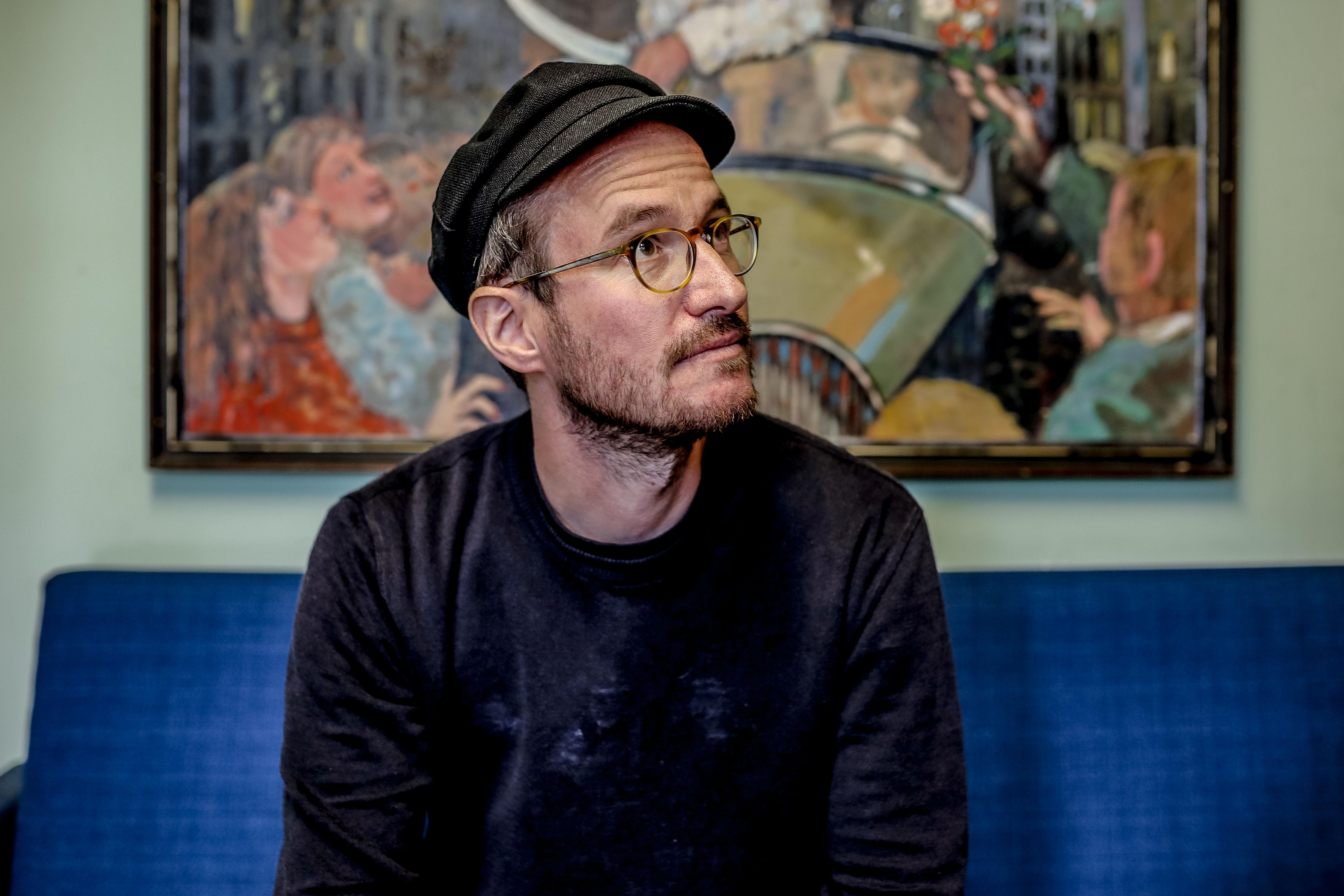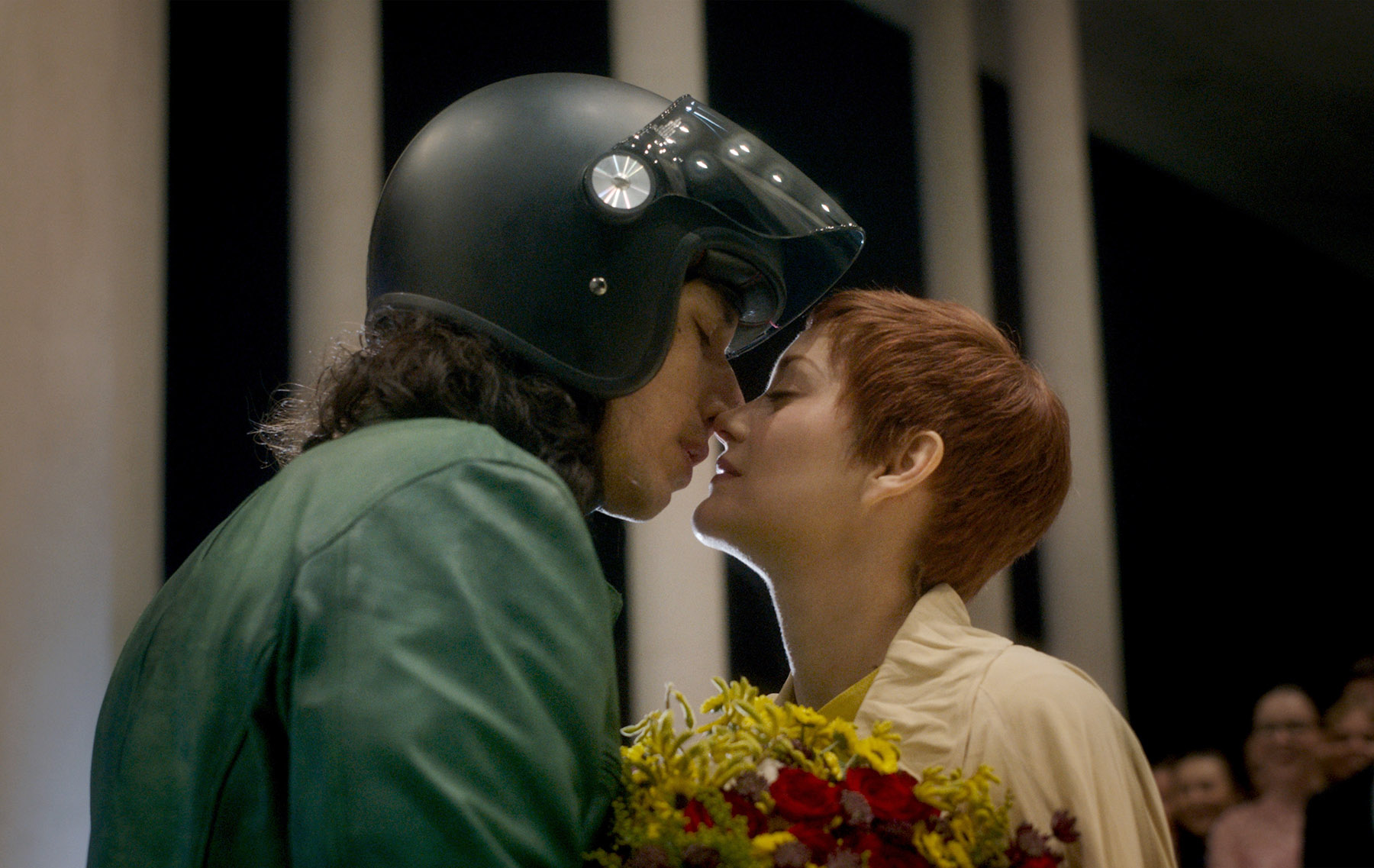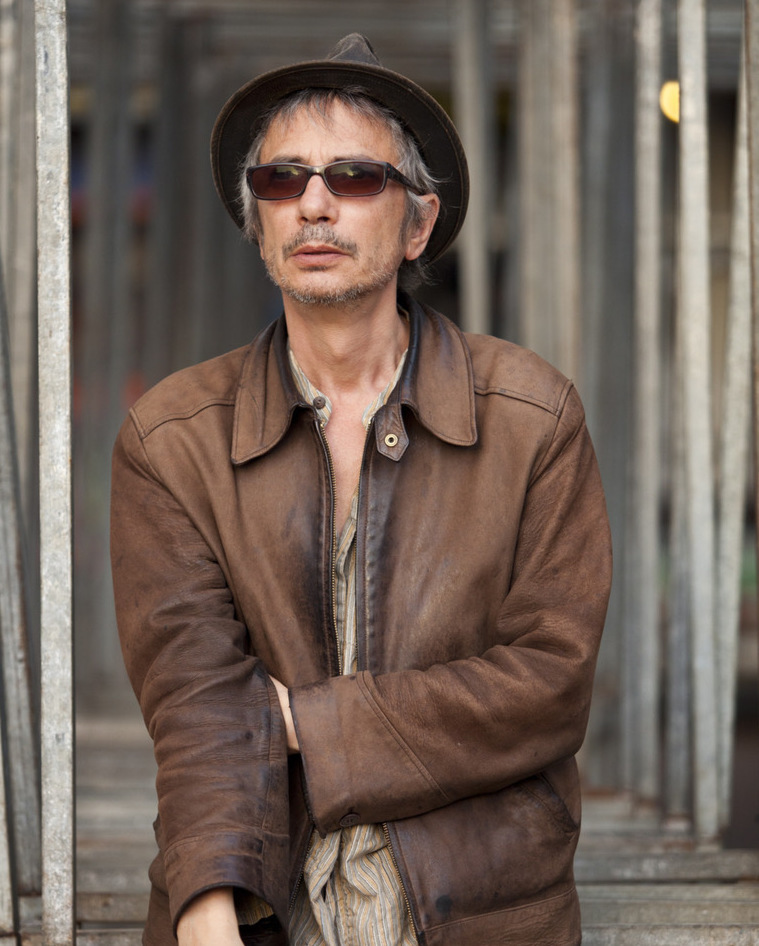
The 49th Hong Kong International Film Festival (HKIFF) leans heavily toward art cinema’s traditional heartland, welcoming three European auteurs to share their work and present masterclasses to the city’s cinephiles.
But whatever cultural cues Leos Carax, Albert Serra and Juho Kuosmanen might share, the three filmmakers are worlds apart in their aesthetic sensibilities and thematic obsessions. The one trait they all share? The power to provoke.
The decadent New Wave heir
If this edition of HKIFF has a rockstar headliner, it’s Carax — an arthouse darling who has electrified audiences with his dazzling visuals while also teasing and testing them by producing films at a snail’s pace. The French director is an archetype bordering on caricature — perpetually clouded in cigarette smoke, grimacing with torture behind dark glasses, simultaneously shying away from and provoking the media glare. He leans knowingly into this pastiche in An Urban Allegory (2024), playing a wizened ballet instructor in Alice Rohrwacher’s short film based on Plato’s Allegory of the Cave.
READ MORE: Pictures of diversity
At HKIFF Carax will present this sleight work alongside It’s Not Me, his 2024 autobiographical visual collage in the style of Jean-Luc Godard, which bookends four decades of comparison with the equally elusive godfather of the French New Wave. HKIFF Director of Programing Geoffrey Wong says that the self-reflective video essay prompted him to revisit Carax’s oeuvre in the shadow of Godard’s death in 2022.
“After the French New Wave, many critics sought the next generation of filmmakers who could revolutionize cinema. Journalists and critics described numerous young directors in the ’80s and ’90s as heirs to the French New Wave directors,” Wong says. “Carax even pokes fun at this theme in It’s Not Me and I appreciate his openness. However, I believe it’s time to move beyond such descriptions and recognize Carax as a filmmaker in his own right.”

The New Wave’s youthful verve and romanticism were instantly evident in Carax’s first feature, the playful but profound, black-and-white Boy Meets Girl — which introduced audiences to both his cinematic alter ego, untested leading man Denis Lavant, and the stunning visual style of cinematographer Jean-Yves Escoffier.
Both men’s contributions equally define Carax’s subsequent Mauvais Sang (Bad Blood, 1986) and Les Amants du Pont-Neuf (The Lovers on the Bridge, 1991), both screening at HKIFF and also starring Juliette Binoche. The latter film made history for its ballooning budget and fractured years-long shoot, which ended Carax and Binoche’s high-profile romantic relationship. This legacy inspired the title of HKIFF’s four-film Carax cycle, The Glamour of Decadence, which also includes his latest narrative feature, English-language debut Annette (2021) — a musical starring Adam Driver and Marion Cotillard and one of just three feature-length pictures Carax has directed in the past 34 years.
Attack of empathy
An unhurried work rate is one quality Carax shares with Juho Kuosmanen, the Finnish director who made a splash at Cannes Film Festival in 2016 with his stunning debut The Happiest Day in the Life of Olli Mäki — a sympathetic boxing movie that flips all the genre’s conventions on its head — and since then has directed just one subsequent feature, 2021’s Compartment No 6.
Both are screening at HKIFF in a program titled An Empathetic Touch alongside Kuosmanen’s new Silent Trilogy of short films.
For HKIFF’s executive director Albert Lee, Kuosmanen is a fresh voice from a nation long defined by the prolific output of offbeat auteur Aki Kaurismäki.
“Silent films represent one of the purest forms of cinema,” he says of Kuosmanen’s tribute to an earlier era. “Modern audiences unfamiliar with silent films may begin to understand why cinephiles cherish them and appreciate how cinema has thrived since that time.”

Subverting history
Six of Catalan filmmaker Albert Serra’s nine features are screening at the festival. The lineup includes his latest Afternoons of Solitude (2024), a documentary that follows Peruvian bullfighter Andrés Roca Rey.
The name nods knowingly to Ernest Hemingway’s classic non-fiction account Death in the Afternoon — yet attitudes to the brutal spectator spectacle have evolved since that classic text’s 1932 publication. Serra is a professed bullfighting fan, and Artur Tort’s sensual, explicit cinematography glamorizes the barbarity of a controversial blood sport, already banned across much of Spain, including the director’s Catalonian homeland.
Serra has defended the film as an anthropological project examining a tradition that needs modernizing. “In the end, perhaps some viewers will be offended by the film, but without the scenes, it would have been superficial,” he says, in an interview with arthouse streaming service Mubi. “At the same time, there’s never any provocation in my films.”
ALSO READ: Not short on talent
This debut documentary follows the runaway success of Pacifiction (2022), a dreamlike corruption thriller set on Tahiti starring Benoît Magimel. The film screened at 73 major festivals, including HKIFF, and won the annual Louis Delluc Prize for best film.
Surrealism and historical irreverence flow freely throughout Serra’s four “anti-period dramas” also screening at the 49th HKIFF: Don Quixote appears on horseback in Honour of the Knights (2006); the Three Wise Kings’ journey to Bethlehem to fete the new-born Jesus is reimagined in Birdsong (2008); libertines expelled from Louis XVI’s court export individualist philosophy to Germany in Liberté (2019); and Casanova meets Dracula in Story of My Death (2013). The program is fittingly titled The Subversive Cinema.
“Albert Serra’s films are subversive because he defies conventional narrative structures and rethinks the representation of fiction and reality in cinema,” Lee says. “His works constantly intertwine history, myth, and literature to create a universe that stands on its own.”


